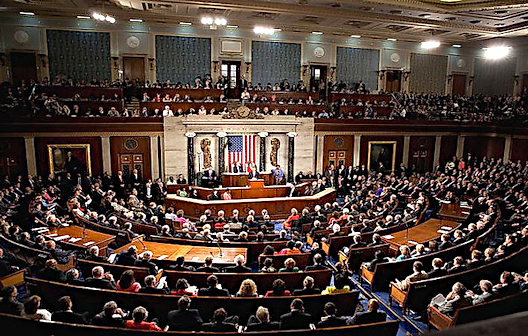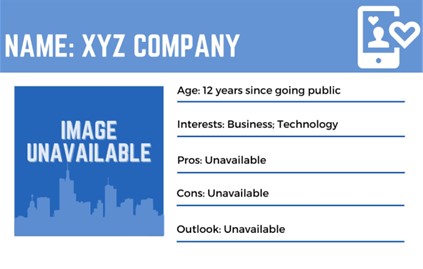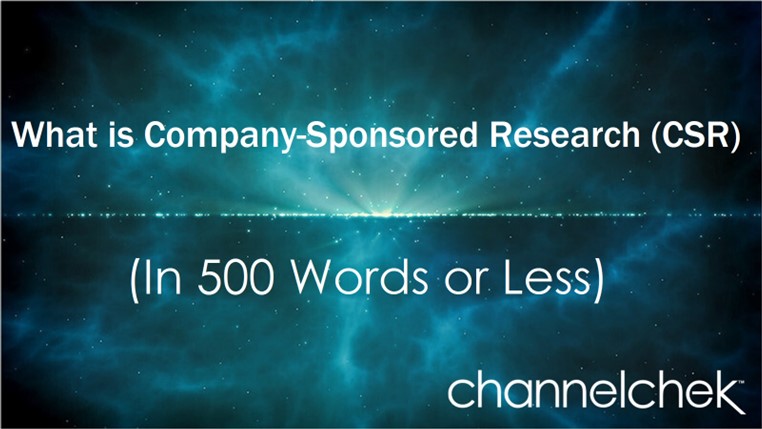Image Credit: Pixabay (Pexels)
Securities Industry Has Less than a Year to Comply with Rules Regarding Research
On July 4, 2023, the European and U.S. financial regulatory bodies could be at odds with each other’s rules. The reason is a simple difference in how each believes compensation should be paid to brokers providing research on securities to clients. The conflict stems from a four-year-old rule instituted in the EU. At the time, it would have impacted U.S. securities brokers, but the SEC temporarily relieved the problem by signing a no-action letter saying they would not enforce the problematic areas immediately. The SEC no-action letter expires on July 3 of next year – the Commission has just indicated they will not renew it. This could create a very expensive problem for many U.S. brokers while leaving investors based out of the EU scrambling to locate institutional quality research. It could also mean fewer companies will get the attention they were once receiving as the information will not be distributed to EU buy-side shops. Worse yet, some of these companies covered by broker analysts may lose all sell-side research of their companies.
Specifics
In 2018 the EU created a rule whereby cost or fees associated with research provided to the buy-side had to be accounted for separately from transactional business income. It’s called The EU Markets in Financial Instruments Directive II (“MiFID II”), the effective date was January 3, 2018. That seems harmless enough; a broker can not provide “free” research to customers; they would need to charge them separately. However, in the US, if a broker or anyone else provides investment advice for a fee, they need to be licensed as an investment advisor. While securities brokers have licenses, this additional registration would change the framework of recordkeeping and allowed activities.
Brokers facilitate trades and are not permitted under their registration to recommend trades. Investment advisors can make specific recommendations. These are very distinct roles in a related field. Investment advisors are clients of brokerage firms.
U.S. registered broker/dealers have had an exception from the definition of investment adviser under the Advisers Act (in respect of research distribution). In the U.S., distribution of research must be advice incidental to the firm’s broker-dealer business, and the broker-dealer does not receive “special compensation.” If the broker gets paid to provide research (hard dollar payment) the SEC considers this “special compensation” for investment advice.
The EU, as of 2018, required a separate breakout fee associated with the “advice.” A separate breakout fee in the states would force the broker to reregister as an advisor if hard dollar compensation is exchanged.
Why is this Suddenly a Problem?
You could blame it on Covid, blame it on disbelief, blame it on forgetfulness, but the SEC issued a no-action letter to the Securities Industry and Financial Markets Association (SIFMA). The letter was renewed in 2020 to expire in July of next year. The essence of the letter is: It would not recommend enforcement action to broker/dealers accepting cash payments for research from investment managers who are required by Mifid II to pay for research with their own money as opposed to client commissions or soft dollars. This was even better for broker/dealers as they began charging these overseas clients or shrunk their research universe.
The original end date of the no-action stipulation was July 3, 2020. It had been extended for three years in order to allow more time for broker-dealers to alter their business to either receive compensation for research services or cease providing it, at least to EU clients.
A Director of the SEC Division of Investment Management recently indicated in a speech that after July 3, 2023, U.S. broker-dealers accepting MiFID II compensation can no longer rely on the no-action letter to escape classification as an investment adviser. The letter will not be renewed as many expected.
Take Away
Equity research, particularly on small and mid-size companies, is important for the buy-side investor, it’s a well-entrenched sales tool for brokers and is important to the covered companies that information is available for investors to better understand their business and outlook. In less than a year, the SEC will expect any broker offering research for pay (as required under MiFID II) to register as an investment adviser. Doing so would be very difficult for much of the U.S. brokerage community.
Other providers of research include Independent Research (IRP), most often paid for by the investor, and Company Sponsored Research (CSR), where the analyst coverage is paid for by the covered company.
Managing Editor, Channelchek
Suggested Content
 Powell Answered the Market’s Three Most Pressing Questions at Jackson Hole Symposium
|
 Lawmakers and Insider Trading Laws
|
 What Dating Apps and Equity Research Have in Common
|
 CSR Provides More Clarity for Investors
|
Sources
https://www.evalueserve.com/blog/us-firms-need-mifid-ii-compliance/
https://www.investopedia.com/terms/m/mifid-ii.asp
Stay up to date. Follow us:

|
